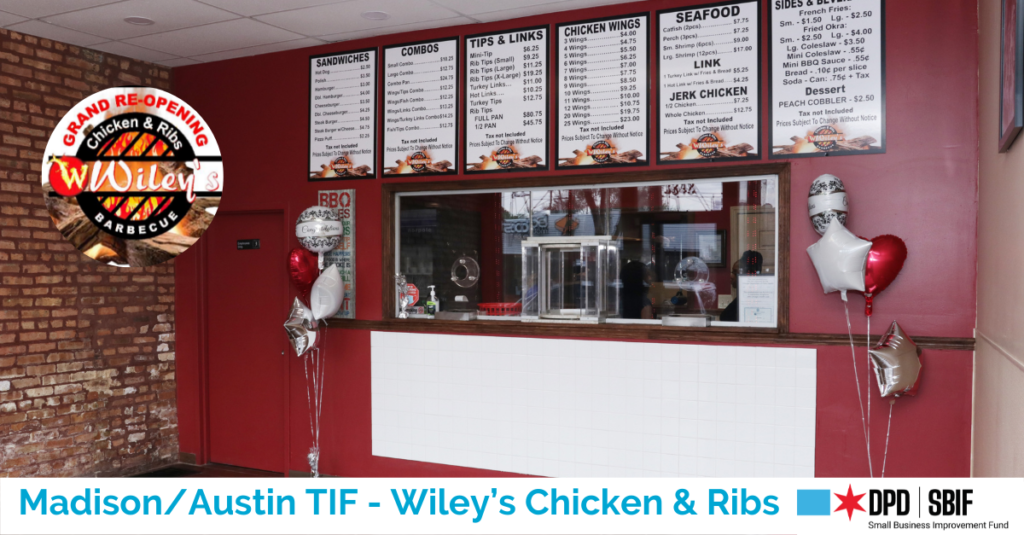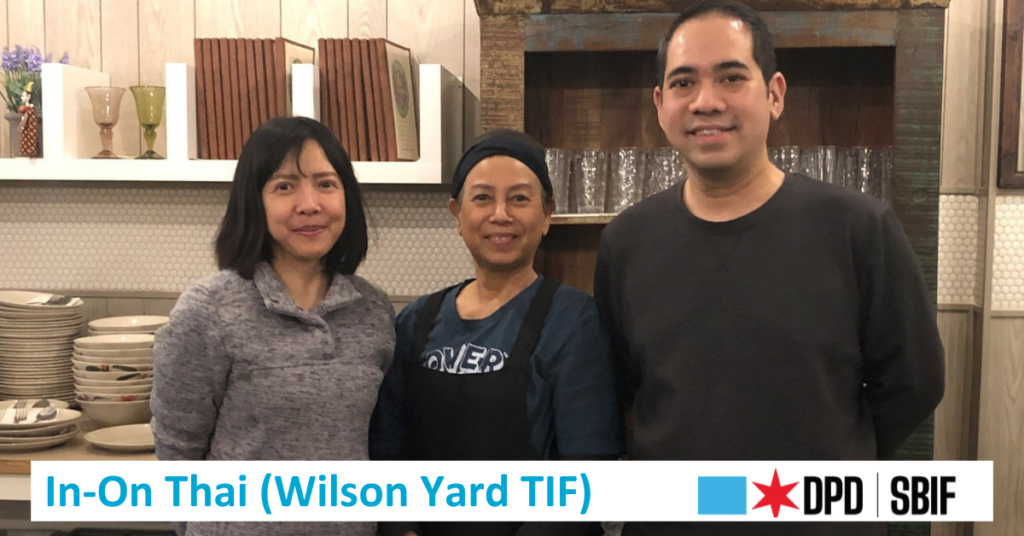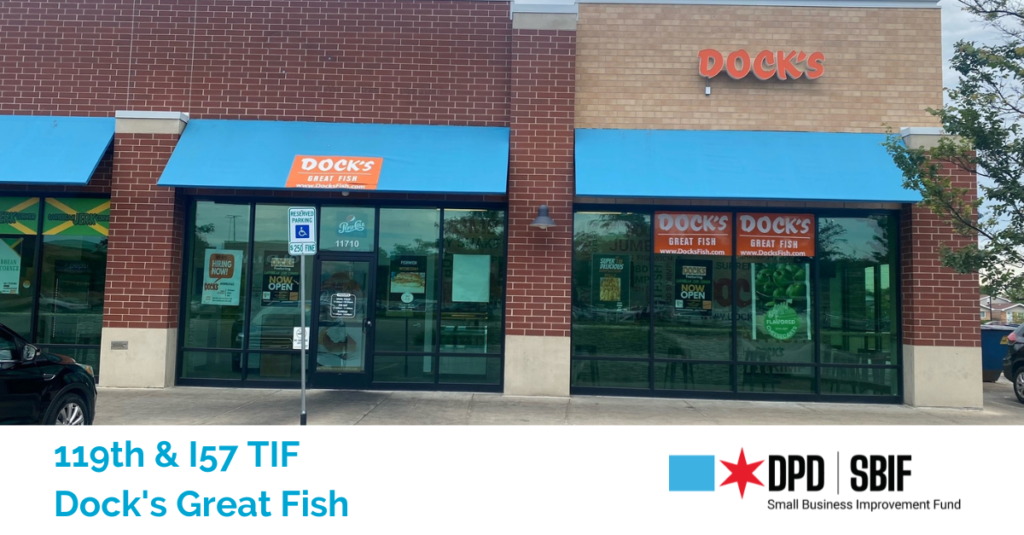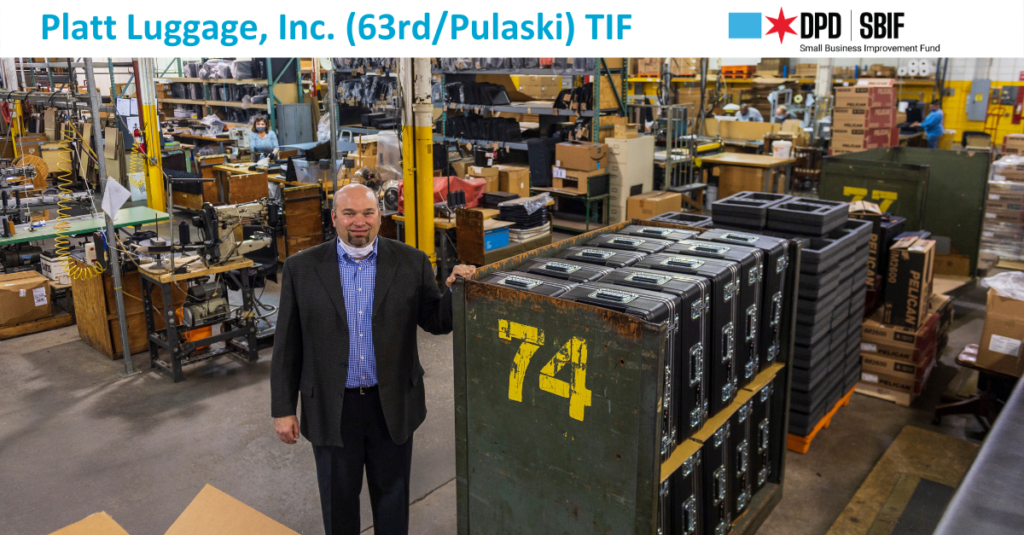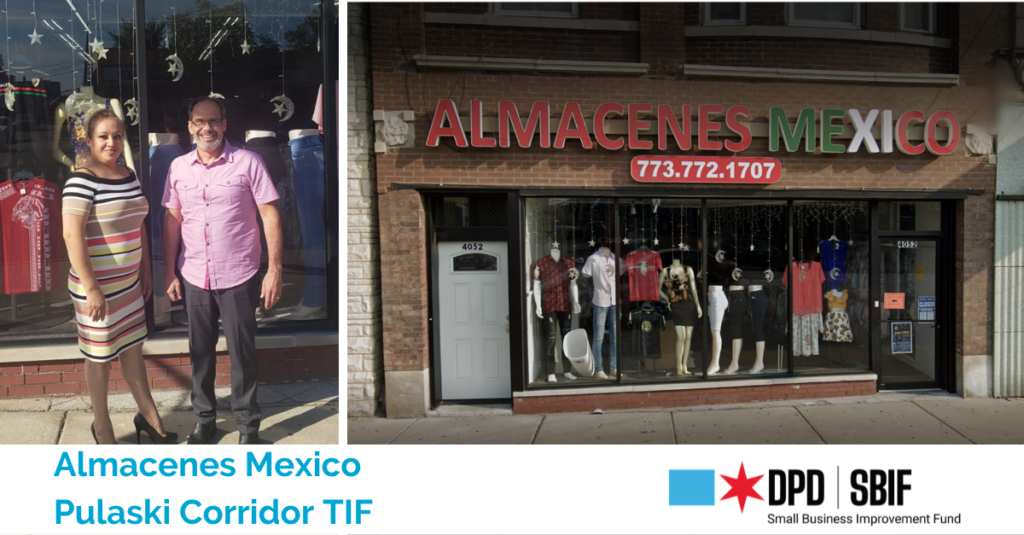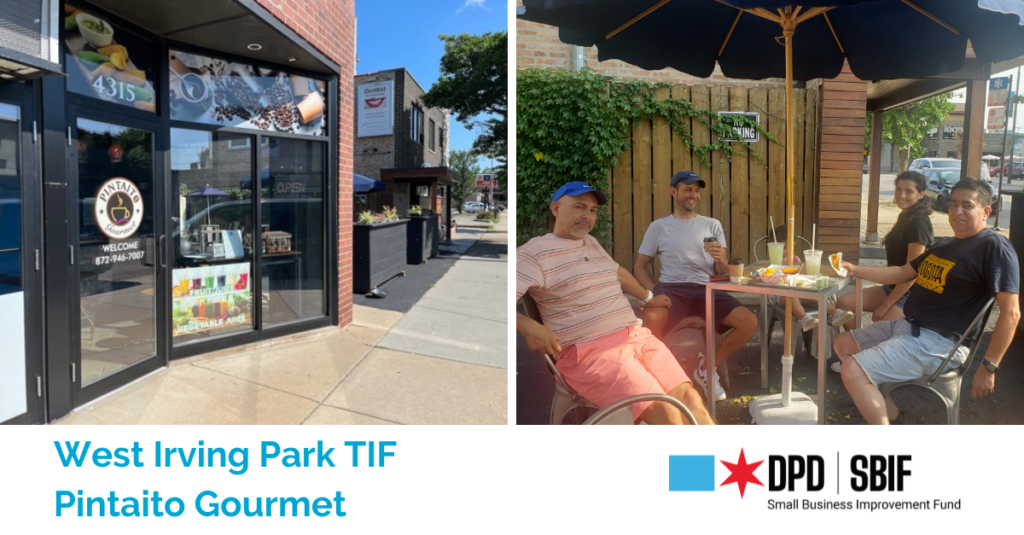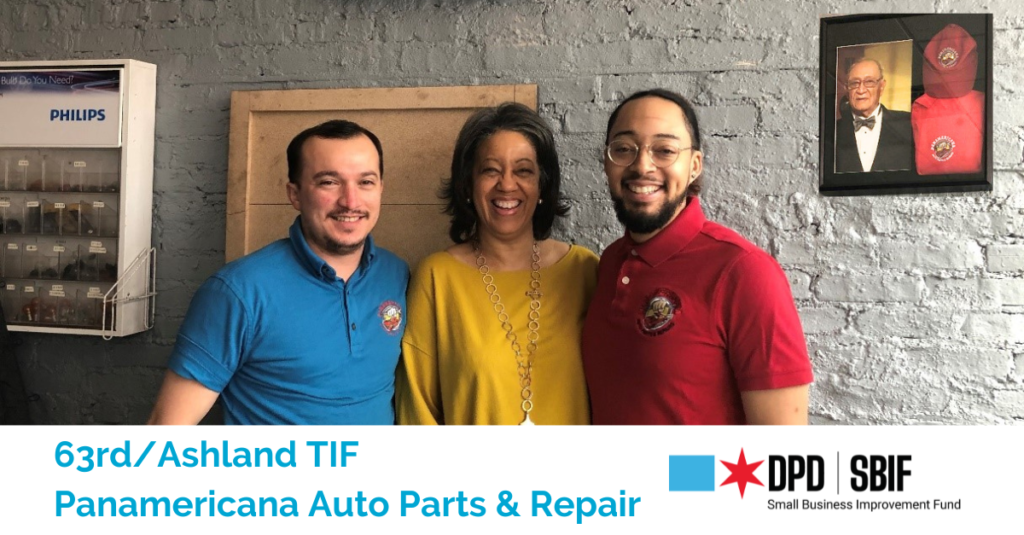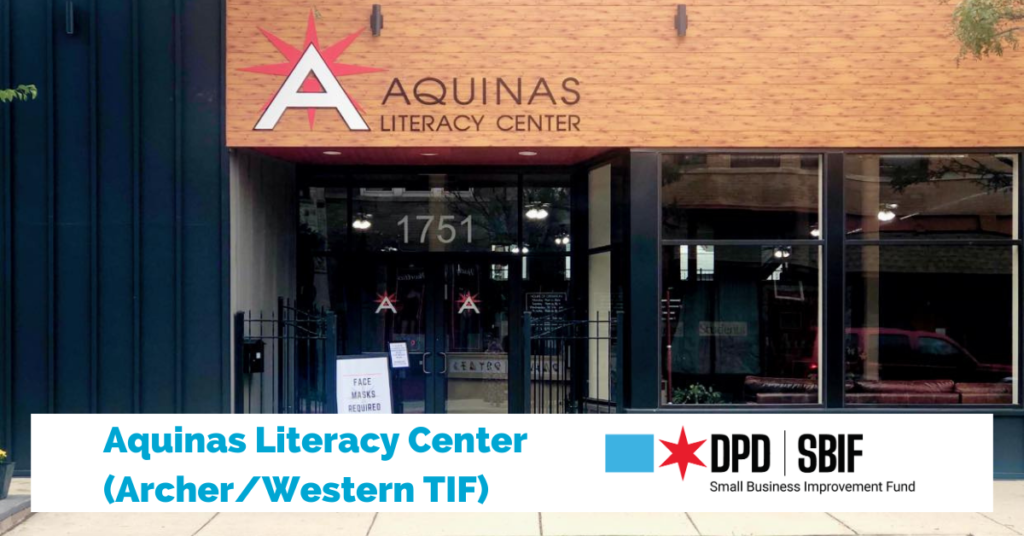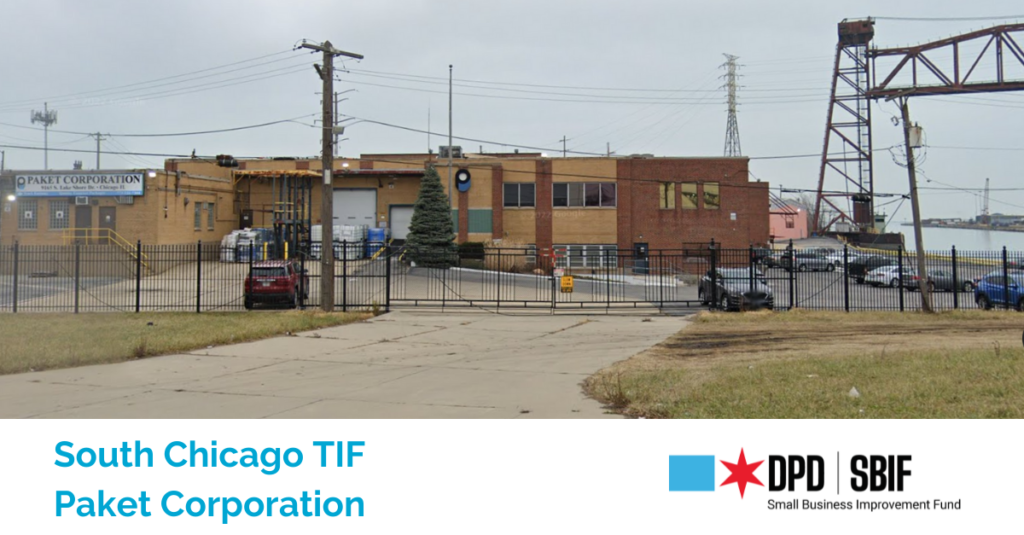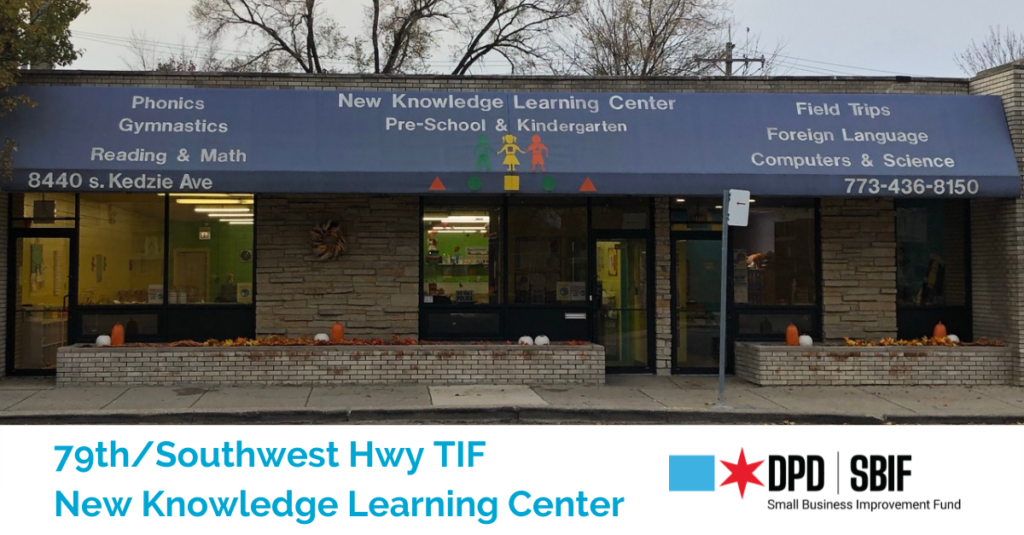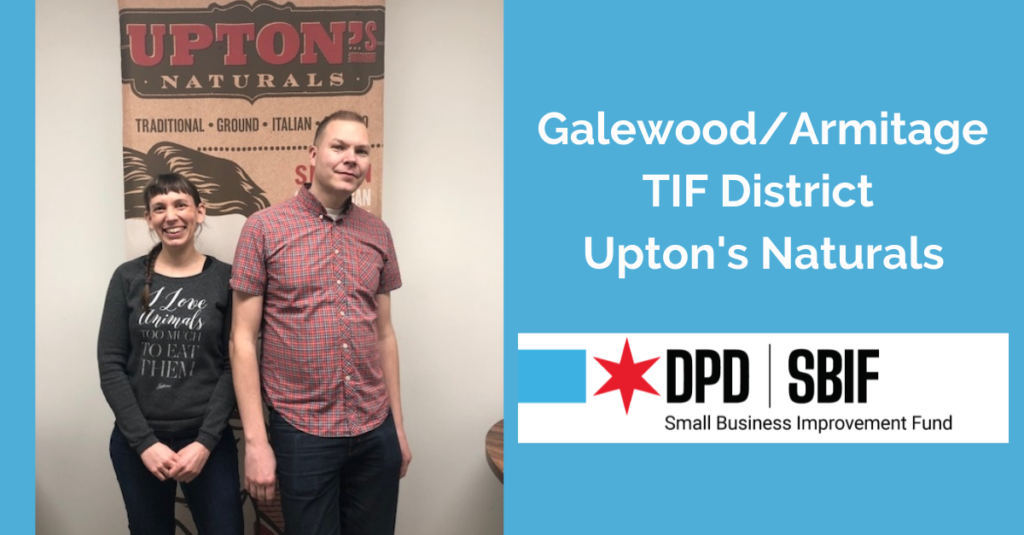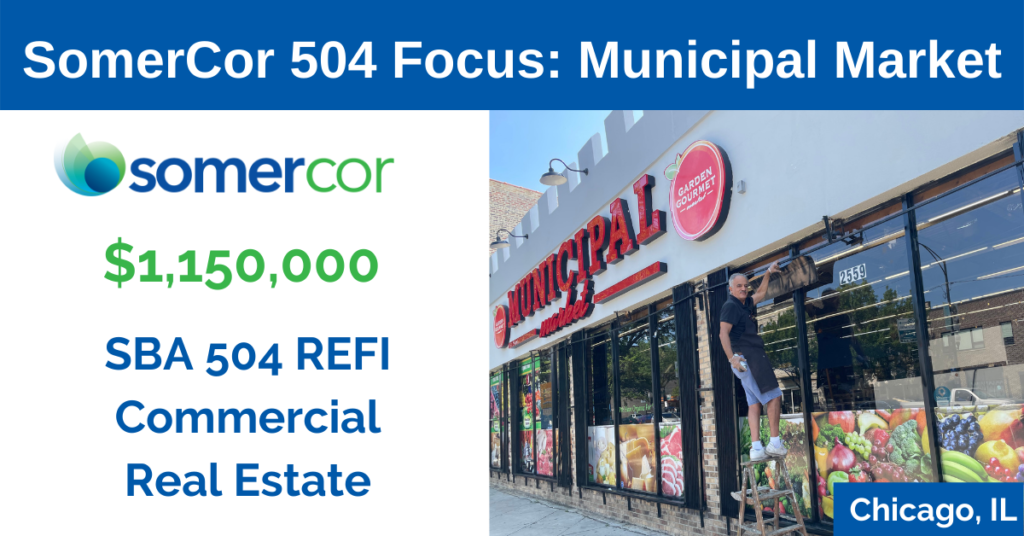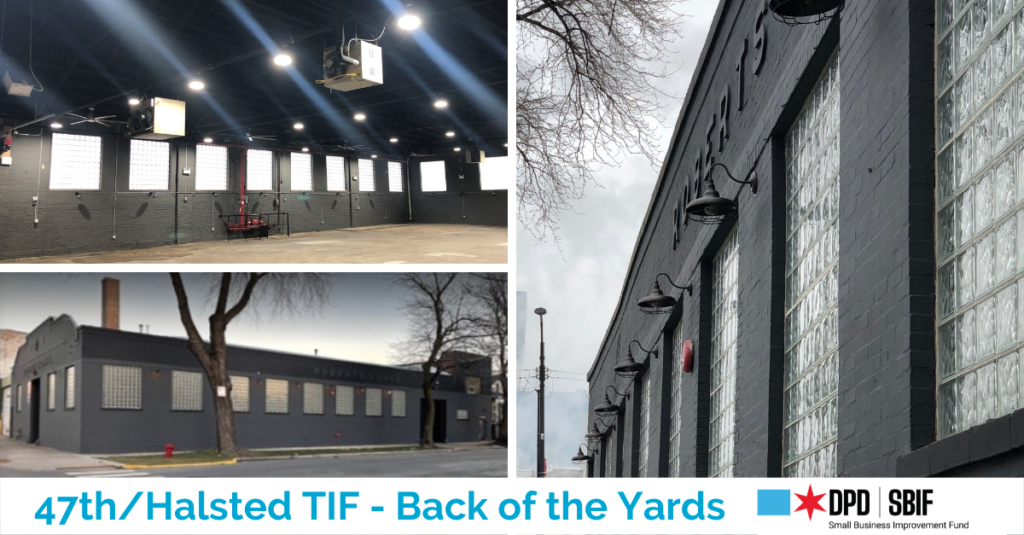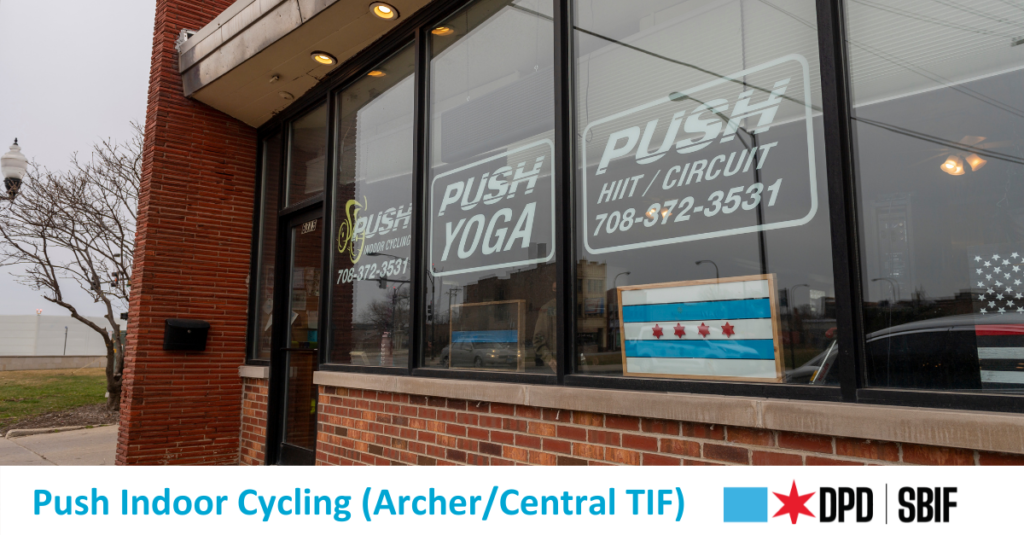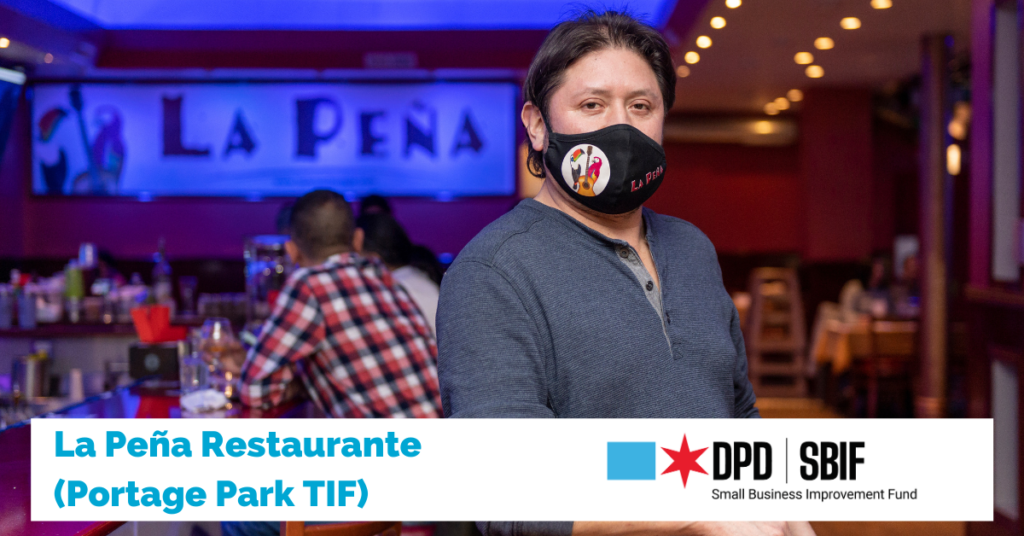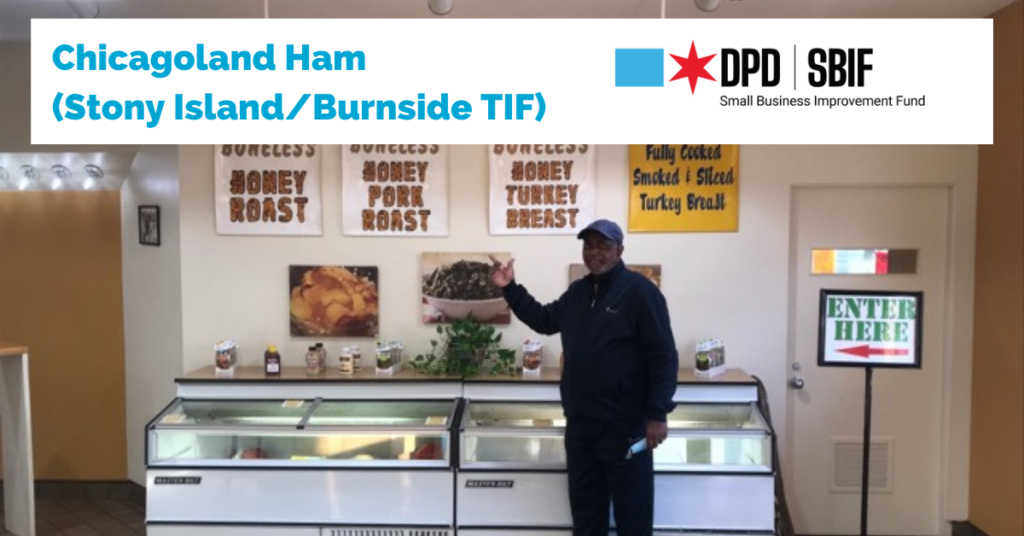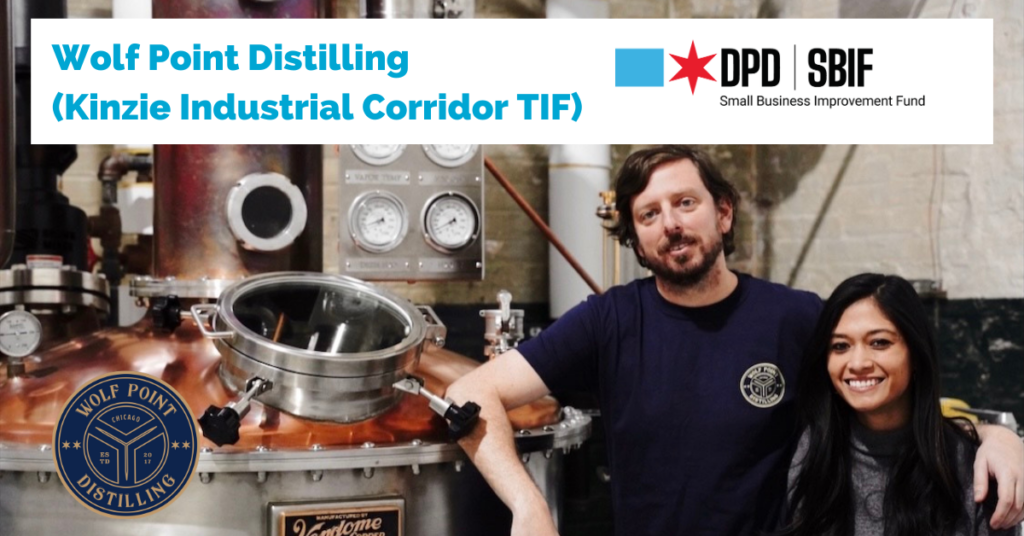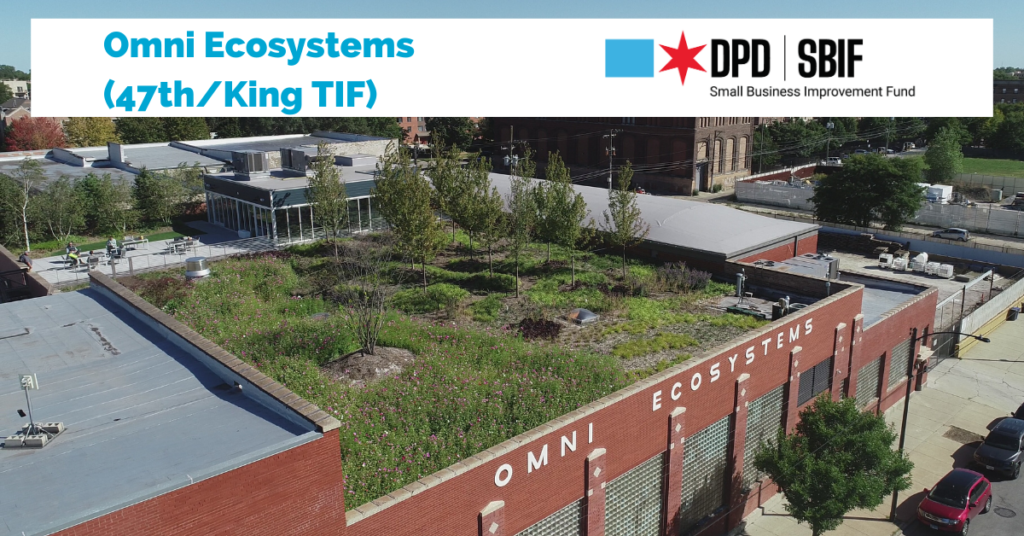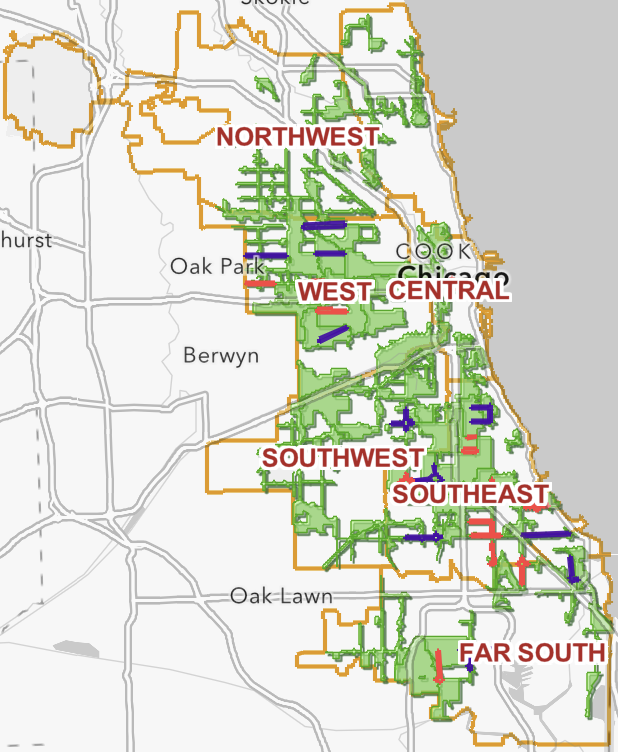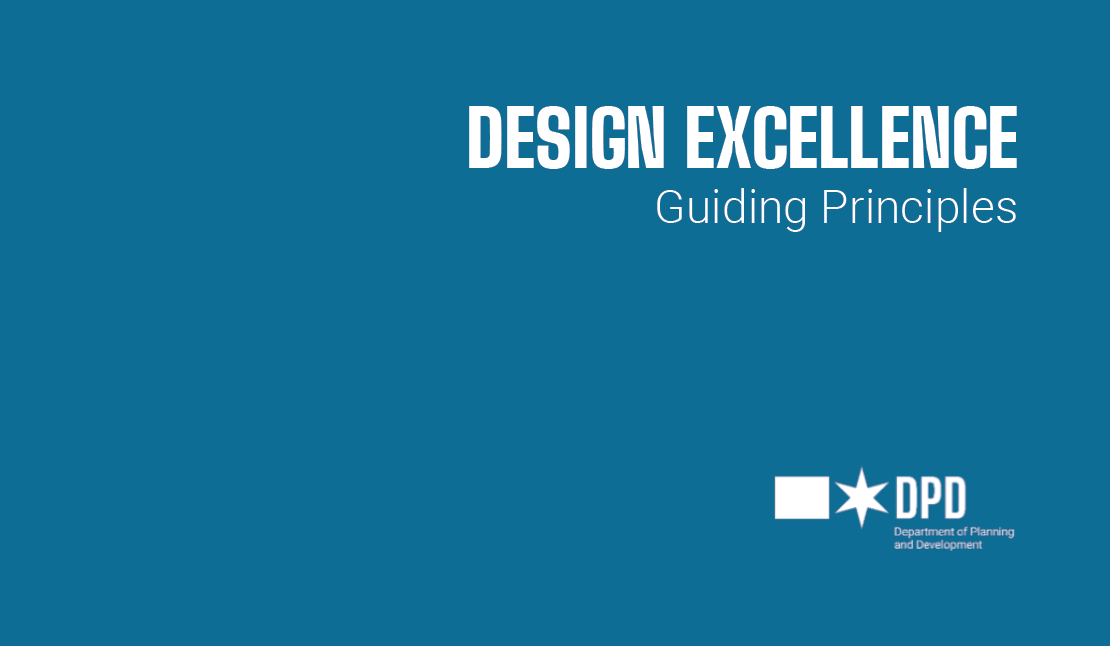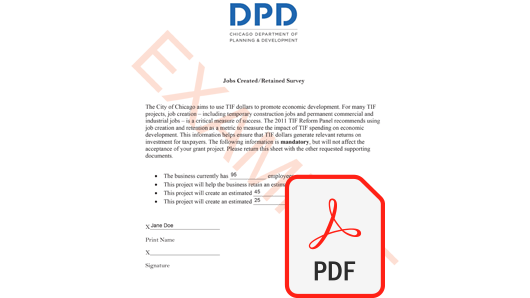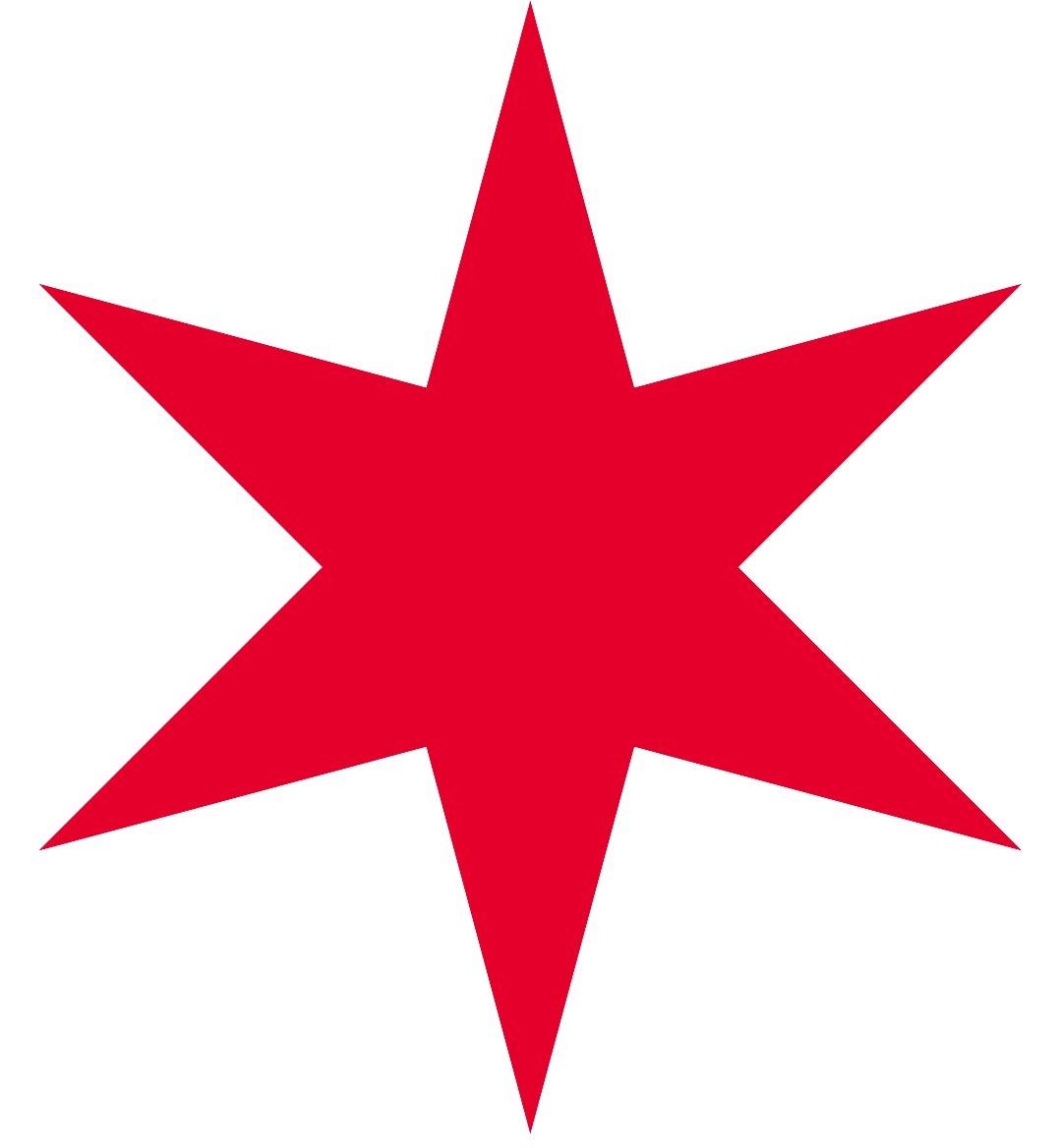Small Business Improvement Fund (SBIF)
Launched in 1999, the City of Chicago’s Small Business Improvement Fund (SBIF) promotes economic development by providing small businesses and property owners with reimbursement grants for permanent building improvement costs. Residential projects are not eligible.
The SBIF grant is funded by local Tax Increment Financing (TIF) revenue and is made available to business and property owners located in the SBIF-eligible TIF districts citywide. Grant funds may be used to reimburse up to 90% of pre-approved construction costs, with a maximum reimbursement of $75,000 for multi-tenant properties, $150,000 for commercial properties, and $250,000 for industrial properties.
SomerCor is proud to administer the SBIF Grant on behalf of the Chicago Department of Planning and Development.
Already applied? Find more resources on the Current Applicants page.
Grant Amount
The maximum grant amount and reimbursement percentage is determined by the property and business type.
Commercial
Commercial business and property owners may receive a maximum of $150,000 in reimbursement. The percentage of reimbursement is determined by the business's gross sales and/or the property owner's net worth:
| Gross Sales or Net Worth | Percent Reimbursed |
|---|---|
| $0 - $3 Million | 90% |
| $3 - $ 6 Million | 60% |
| $6 - $9 Million | 30% |
Industrial
Industrial businesses and properties may receive a maximum of $250,000 in reimbursement.
All industrial projects are eligible for 50% reimbursement of costs.
Property owners that lease more than 50% of the property to one or more entities in which they do not have an ownership interest are to be evaluated for eligibility under the Net Worth and Liquidity Requirements.
Eligibility
Eligible Applicants
The project property must be located within a SBIF-eligible TIF district. Verify if your property is in a TIF with the locator tool.
Commercial businesses with an average of less than $9 million in annual gross sales.
Industrial businesses with no more than 200 full-time employees.
Property owners with a cumulative net worth of less than $9 million and less than $500,000 in liquid assets.
Must have site control of property in the form of a deed or executed lease agreement with the title-holder.
Ineligible Applicants
| national chains | liquor stores | gas stations |
| employment agencies | hotels and motels | places of worship |
| currency exchanges | adult uses | smoke shops/cigar lounges |
| loan stores | private clubs | tobacco dealers |
| pawn shops | wagering facilities | storage warehouses |
| fortune telling service | K-12 schools | storage yards |
| branch banks | firearms dealers | firearm ranges |
These lists are not comprehensive. Please contact SomerCor with any questions about eligibility.
Eligible Expenses
All expenses must be approved by the City of Chicago before construction starts and prior to any payments to contractors. Permanent building improvements that enhance the appearance or viability of a property are generally eligible for reimbursement. Eligible improvements may include, but are not limited to:
roof and façade improvements
alterations or structures needed for ADA compliance (e.g., railings or ramps)
HVAC and other mechanical systems
plumbing and electrical work
permanent interior renovations, including fixtures
solar panels
Ineligible Expenses
The following items are not eligible for reimbursement. This list is not comprehensive.
work on the interior of residential units
new construction (additions/expansions, “ground up”)
stand-alone minor repairs or cosmetic improvements
equipment-related expenses (e.g. kitchen appliances, computers, office furniture)
planters surrounding or affixed to buildings
outdoor dining or drinking areas
fencing including pergolas, trellises, arbors, privacy screens, and similar structures
parking lot construction or repair
landscaping
business-specific items
For full eligibility and requirements, please see the SBIF Program Rules.
TIF Rollout Calendar
SBIF applications must be submitted during monthly rollout periods for individual TIF districts. Upcoming dates are listed below. Applications received for a TIF district outside of its open acceptance period will be rejected.
Current TIF Districts
Check your TIF district with the locator tool. Ready to apply?
July 2024
OPENS: July 1 at 9 A.M.
CLOSES: July 30 at 5 P.M.
Informational Webinar:
July 3 (Wed) at 1 P.M. Video
Upcoming TIF Districts
August 2024
OPENS: August 1 at 9 A.M.
CLOSES: August 30 at 5 P.M.
Informational Webinar:
August 7 (Wed) at 1 P.M. Register
September 2024
OPENS: September 1 at 9 A.M.
CLOSES: September 30 at 5 P.M.
Informational Webinar:
September 4 (Wed) at 1 P.M. Register
October 2024
OPENS: October 1 at 9 A.M.
CLOSES: October 30 at 5 P.M.
Informational Webinar:
October 7 (Wed) at 1 P.M. Register
SBIF Application
To apply for the SBIF program, please download and fill out the application. Once complete, email the application to SBIF@somercor.com during your TIF open acceptance period.
After submitting your application, you will receive a confirmation email within two business days to confirm the application was received and advise of any preliminary concerns. If you do not receive an email confirmation within this time, please reach out to verify your application status.
Applicants are responsible for making sure submissions are received within the open acceptance period. Applications received after 5 P.M. on the last day of the acceptance period will not be eligible.
If a lottery is not needed, a SBIF Project Coordinator will reach out to to begin Stage 1 a few weeks after the application period has closed.
SBIF Program Timeline
Applicants who do not complete each stage in the required time limit will be disqualified and removed from the program.
SBIF Calculator
Estimate your SBIF reimbursement with this calculator. NOTE: This is only an estimation. Several factors can affect eligibility and reimbursement amount.
The maximum grant amount your project may receive:
All costs must be approved by the City of Chicago prior to construction. These numbers are for informational purposes only and not a guarantee of funds. Each application will be reviewed for eligibility and grant amounts may be adjusted as necessary.
